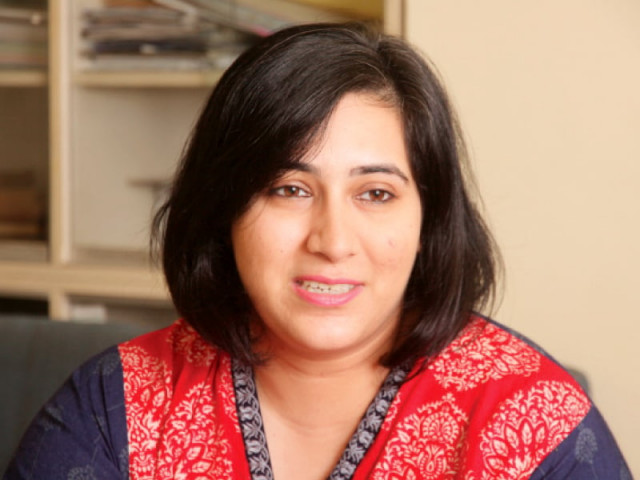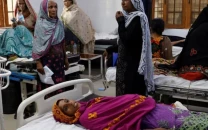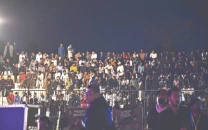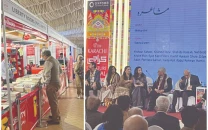Legal battle: The woman behind Sindh’s domestic violence bill
The 32-year-old lawyer says she doesn’t even remember how many hours she spent on the bill

The night before the domestic violence bill was to be presented in the Sindh Assembly, lawyer and human rights activist Maliha Zia Lari sat in the law department rigorously going through the final vetting process.
The next morning, March 8, 2013, which was also International Women’s Day, Lari and other members of Aurat Foundation nervously stood on the steps of the assembly building. They handed roses to the parliamentarians and requested them to support the bill.
“March 8 was huge,” Lari beamed as she remembered that day as they had been working on the bill since 2007. She was part of the committee that framed Sindh Domestic Violence (Prevention and Protection) Bill, 2013. The 32-year-old lawyer sits at the office of the Aurat Foundation in Clifton and talks about how she doesn’t even remember how many hours she spent on the bill.
One task that she and her fellows did was to bring women parliamentarians on the same page, and merge all their individual domestic violence bills into one bill.
A legal and gender consultant with the Aurat Foundation, Lari comes from a family of strong and daring women who greatly believed in their empowerment. Her grandmother, Satnam Mahmood, belonged to the first women’s batch at Harvard, and was one of the first few female government servants.
Lari’s mother, Shahla Zia, a lawyer, is said to be one of the founders of the women rights movement, and one of the first females enrolled in Punjab High Court. Shahla went on to become one of the founder members of AGHS, a women lawyers firm, and also went on to form Aurat Foundation in 1986.
“In [General] Zia’s era, there was a lot of activism for women rights,” Lari recalled. “I remember being one year old when Ammi was arrested in 1983 during a protest against Qanun-e-Shahadat.” Lari spent much of her childhood sitting in a corner with the children of other activists, colouring books and doing homework while the activists held meetings. “I grew up in an environment where we were aware of political unrest. In class six, when I wrote an article on rape and Zina ordinance, the teacher complained to my mother.”
A particular incident that took place when Lari was seven years old stands out in her memory. Her mother was dealing with a case of a seven-year-old domestic help who was burnt with an iron by her employers.
Lari completed her LLB degree and her LLM in international human rights from the School of Oriental and African studies in London. “My father pushed me into the development sector,” she said. In 2007, she officially joined Aurat Foundation.
The lawyer also had a chance to work briefly on the Mukhataran Mai case with barrister Makhdoom Ali Khan. “Evidence was a problem in her case,” said Lari. “But the language of the judges of the Supreme Court verdict was really negative, harsh and anti-women.”
Since the domestic violence law has passed, Lari is now advocating for its implementation. “The government has yet to pass the rules of business that fully implement the law. Also there is a lack of awareness.”
You can read other stories from this series here.
Published in The Express Tribune, November 29th, 2014.


















COMMENTS
Comments are moderated and generally will be posted if they are on-topic and not abusive.
For more information, please see our Comments FAQ